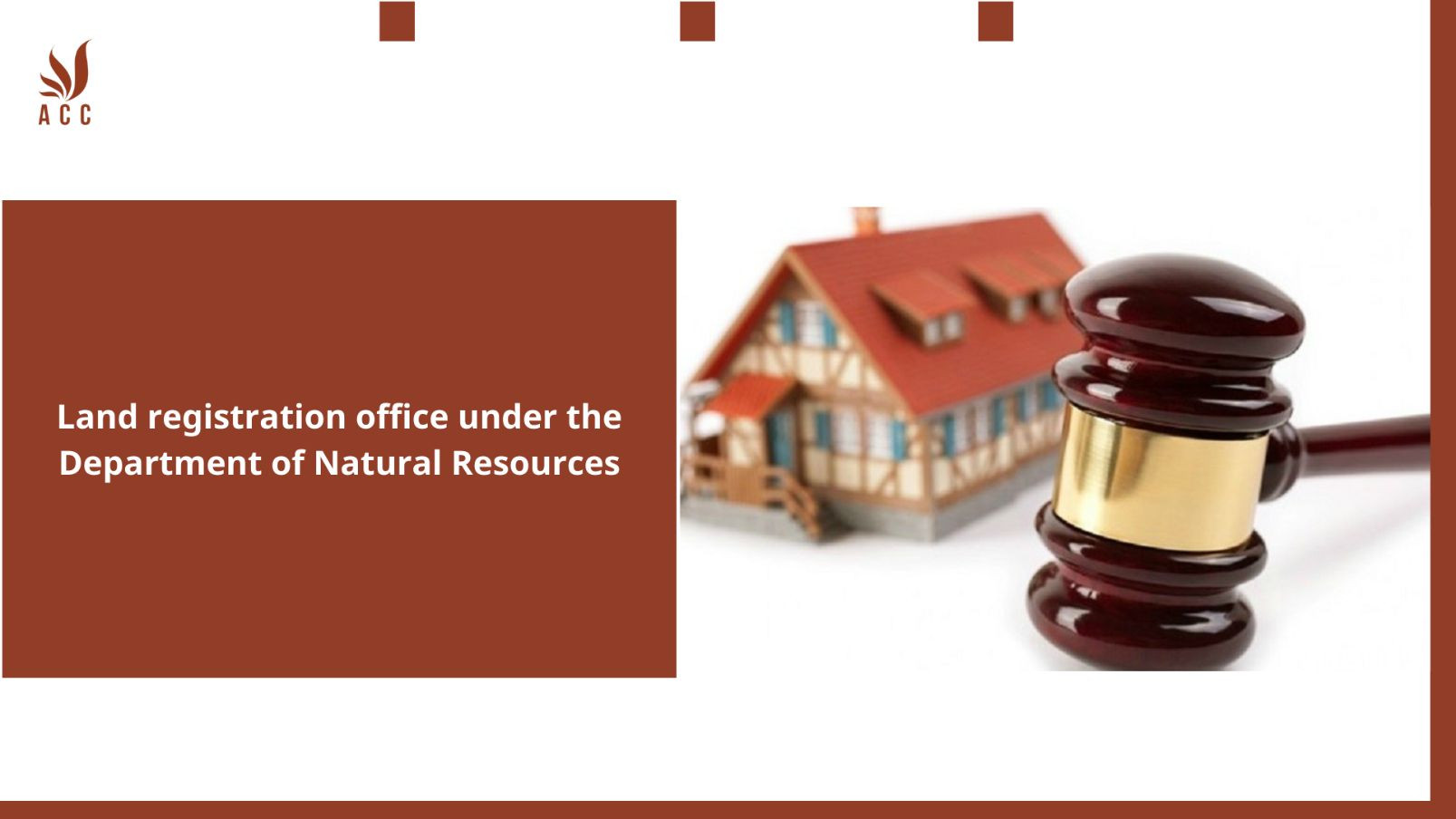The land registration office under the Department of Natural Resources is a government agency responsible for maintaining records and managing the registration of land and property transactions within a specific jurisdiction. This office operates under the umbrella of the Department of Natural Resources, which oversees various aspects related to land, environmental resources, and often property management.
Key functions of such an office may include:

1. Recording Property Transactions:
Keeping records of property transfers, mortgages, easements, and other legal interests in land and real estate.
2. Land Title Registration:
Registering land titles and deeds to establish legal ownership and prevent property disputes.
3. Maintaining Land Records:
Storing historical records of property transactions for legal and historical research and property dispute resolution.
4. Public Access:
Providing public access to land records, allowing individuals, businesses, and professionals to search for and obtain information about properties
5. When using ACC Law Firm's land-related services, entrepreneurs will receive
When using ACC Law Firm's land-related services, entrepreneurs will receive expert advice and assistance in navigating various legal aspects of land ownership and transactions. This includes guidance in property acquisitions, leases, zoning regulations, land use planning, and any other land-related legal matters. ACC Law Firm's team of experienced attorneys will provide personalized support to entrepreneurs, ensuring compliance with applicable laws and regulations, protecting property rights, and optimizing the value of their land investments.
6. Q&A
Question 1: What is the primary role and function of the Land Registration Office under the Department of Natural Resources?
Answer 1: The primary role of the Land Registration Office under the Department of Natural Resources is to serve as the local or regional authority responsible for registering and maintaining land-related records within their jurisdiction. Its primary function includes recording land ownership, documenting land transactions, and ensuring the legal accuracy and compliance of land records.
Question 2: What documents and information are typically required for land registration at the Land Registration Office under the Department of Natural Resources?
Answer 2: To register land at the Land Registration Office under the Department of Natural Resources, individuals generally need to provide the following documents and information:
- Deeds of conveyance or transfer
- Property surveys and land descriptions
- Proof of ownership, such as title deeds or certificates
- Identification documents of property owners
- Details of any existing mortgages, liens, or encumbrances
- Payment of registration fees and taxes
These documents and information are essential to establish property ownership and maintain accurate land records.
Question 3: How does the Land Registration Office under the Department of Natural Resources support property owners and the public in land-related matters?
Answer 3: The Land Registration Office under the Department of Natural Resources provides various services to support property owners and the public, including:
- Offering guidance on the land registration process, requirements, and legal procedures.
- Providing access to property information and certified copies of land records.
- Assisting in the resolution of land-related disputes and conflicts.
- Promoting awareness and education regarding land rights, responsibilities, and the importance of proper land registration among property owners and the public.
Question 4: What measures are in place to safeguard the integrity and security of land records at the Land Registration Office under the Department of Natural Resources?
Answer 4: The Land Registration Office under the Department of Natural Resources implements security measures to protect the integrity and security of land records, including:
- Controlled physical access to secure document storage facilities.
- Utilization of digital records management systems with encryption and authentication protocols.
- Regular audits and quality control checks to verify the accuracy of records.
- Implementation of disaster recovery and backup systems to prevent data loss in emergencies.
- Adherence to data protection and privacy regulations to protect the confidentiality of property owner information
Nội dung bài viết:






Bình luận